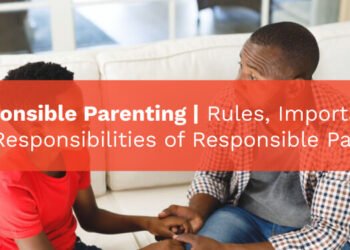Even if your acquaintances and associates use cuss words, you will be viewed as more mature, polite, and kind if you control your language. So it’s best to curb foul language. You can choose to be considered harsh, crude, and vulgar, or choose to have character and respect.
Swearing is widespread in today’s society, and children are constantly exposed to it. You don’t even realize most of the time that you’re cussing or using foul language in front of your children. So it’s not surprising if kids repeat what adults have said, what older peers have pushed them to say, or what they’ve heard on TV or through social media.

And like any bad habit, it is easy to pick up and difficult to overcome. It is, still, possible to change your swearing habits and curb foul language. If you recognize that you have a problem and attempt to change it, you can stop speaking the lousy language.
You have to curb the foul language of your kids at a young age if they have any. It becomes hard to deal when they are adults or grown-ups as it becomes a habit.
Some kids use inappropriate language out of irritation and anger, while others do so to elicit a response, impress, or be the center of attention. It’s important to realize that younger children don’t always recognize what they’re saying.
Because swearing is inappropriate, vulgar, and disrespectful, it should not be allowed near children. You won’t be able to stop every other person, so your children will also hear those words and you may even be the one to receive those swear words from your children.
You have to keep swearing habits under control, especially when you have children who learn faster from what they hear and see what you do. Swearing can be terrifying, to hear your teen curse or use vulgar words against you can make you enraged or so taken aback that you don’t know what to say.
How to Deal with Swearing in a Positive Way
Whether your children were upset because you told them they couldn’t go out with their friends or because you told them they had to clean their rooms, their foul language is still unacceptable.
However, it’s critical to respond in a way that will dissuade your kid from repeating the behavior. For example, you never want your teen to speak to a future employer or friend using any foul language.
Here’s how to deal with swear words and vulgar language :
- Maintain a calm demeanor.
- Take a break if you need to before dealing with your child about using such language.
- Ascertain that the rules are obeyed.
- Make sure there are consequences.
- Encourage future successes.
If your children speak to you in a profane manner, it’s a sign that you need to work on their behavior. While it’s critical to take quick action to ensure your teen realizes their actions were inappropriate, it’s also critical to work on measures to prevent the risk of it happening again in the future.
- Double-check that parents and children are on the same page.
- Set a positive example for your children.
- Teach your teen how to control their rage.
- Keep an eye on your teen’s social media usage
 Ten Ways To Reduce Inappropriate Language Are:
Ten Ways To Reduce Inappropriate Language Are:
Over time, children will develop a deeper understanding of the power of words. Unfortunately, curse words are often used in a crude effort to stimulate some emotional response or shock value. The unfortunate aspect of using curse words as a default is that a language can communicate the message on a far deeper level.
We must assist our children in developing a command and range of language. Moving kids away from cursing as a default is a good place to start. These ten methods will help your children curb foul language:
Begin By Putting An End To Casual Swearing
Instead of using offensive words, use expressions to stress your point. It would help if you made children realize that using such foul language is not cool and have severe consequences.
In the long run, it’s a good idea for the adults in the family to talk about and agree on acceptable language and then talk about it with children. When you’re out and about, you can’t prohibit strangers from swearing around your child, but you can teach your child what is and isn’t acceptable to speak.
Lead By Example And Be A Good Role Model
First, you must control your rage and should treat others with respect as well. When persons with whom they have a strong bond such as friends, parents, or media personalities use swear words, children are more likely to learn to swear.
Children are learning that swearing is socially acceptable behavior, even if they don’t start mimicking terrible language right away, it will create a way for their foul language
Be a role model for your children, someone who is admired for their good qualities. Children may follow your actions and look up to you for advice and inspiration if you have a positive influence and impact on them.
Your children will learn from you and your habits if you are rude to service employees or get into disputes with your partner and say disrespectful things. Take deep breaths to cool down and think about the words you can use instead of other curse words. You can also replace the curse words with some funny words or words that are not harmful.
Recognize That Cursing Has Negative Consequences
 You curse because it is simple, enjoyable, emphatic, expressive, break the rules, and alleviates some of your anger and suffering. Using profanity to win an argument is not a wise strategy.
You curse because it is simple, enjoyable, emphatic, expressive, break the rules, and alleviates some of your anger and suffering. Using profanity to win an argument is not a wise strategy.
Respect and admiration are something that you earn. By cursing, instead of motivating others, you will terrify them. You won’t get a job, a promotion, or a romantic connection by swearing. Changing your perspective on a situation might help you relax and overcome negative feelings that result in foul language.
Make An Effort To Be Patient And Stay Away From Distractions
When you’re stopped in a queue or stuck in traffic, be patient and consider whether a few extra minutes are worth it. If you have no control over the issue, schedule the rest of your day or do the thinking you never have time for. Talking to someone can help curb foul language, even if it’s a stranger in line behind you.
Patience allows us to look deeper into things and circumstances than they appear to be. Patient people can be incredibly popular because of their calm, understanding conduct, and self-control. Patience also gives you inner peace and the ability to maintain a positive attitude in the face of difficulties.
A swear box or swear jar can be used to assist people in refraining from cursing. When someone says a swear word, those who hear it collect a “fine” by demanding that the offender put money in the box.
The collected funds stored in a swear jar may be used for some agreed-upon purpose or donated to charity from time to time.
Cope Instead Of Cursing
You should know that we live in an imperfect world, but our expectations continue to rise. Every day can bring its share of annoyances, delays, disappointments, and frustrations. In the end, we’ll have to deal with them, so, instead of cursing, learn to cope. Consider even the little discomfort a challenge, and be proud of yourself for happily and quickly resolving it.
Positive Thinking Should Be Practiced:
Look on the bright side of things. Develop a positive mentality that you “can do it”. Worry until the situation pushes you to prepare for it, then hope for the best. A positive mental attitude not only reduces cursing but also makes you happier and brightens your personality.
Giving up swearing requires positive thinking. This is because people are more likely to swear when they are complaining, in a poor mood, or being negative in general. You can drop the need to swear by thinking positively. Learning to think positively can be challenging, to be sure.
You must also have faith in your capability to stop swearing. You are dooming yourself from the start if you have a gloomy mindset and worry about your ability to succeed. Remember that if others can quit smoking or drop hundreds of pounds by dieting, you can certainly stop cursing.
Consider What You Should Have Said Instead Use Substitute
Even though English is a flourishing language, habitual cursers continue to repeat the exact words for generations. Create your list of substitutes for the wrong phrases you use using your brains, a dictionary, and even some of the more brilliant TV series.
Make use of different terms, for example, make it a practice to replace “swear words” with a few powerful or even hilarious words. They may not understand you right away, but they will eventually.
It’s all too easy to blurt out a swear word at an inopportune moment or to make an insensitive or tasteless remark before you’ve had a chance to ponder the consequences. Instead, consider what you should have said.
After you’ve yelled a curse word, say the milder word you wish you would have said. Consider how you may have framed anything if you make a statement that you later realize was nasty, aggressive, or disrespectful. These exercises will teach you to think and act differently over time.
Learn To Recognize And Avoid Your Triggers
Every person has a unique set of conditions that trigger a strong desire to swear. It’s traffic for some, the grocery store line for others, and mostly when things they desire don’t happen.
Keep an eye on your swearing patterns. You might be able to avoid your triggers if you can pinpoint them – for example, by leaving work 30 minutes later to avoid rush hour, shopping online, or thinking about good things instead.
Remove yourself from situations that cause negative emotions to rise, and you’ll be able to better manage what you say.
Make a Note To Set a Friendly Reminder:
To curb foul language, make it clear to the children what is an acceptable language and what is not acceptable or improper language. Address the message to everyone without focusing on any one person, group, or circumstance. Discuss how you show each other respect and build a sense of politeness and manners. Remember to correct them or yourself if impolite or cuss words are spoken.
Put In The Effort And Maintain Complete Consistency:
Breaking the habit of swearing could be as difficult as losing weight, quitting smoking, or changing any other habit. It takes practice, encouragement from others, and a genuine desire to improve oneself not by managing your vocabulary but also by controlling the feelings that lead to swearing.
- When you’re thinking, use clear language and turn negative thoughts into constructive solutions.
- You’ll be more cautious in their presence if you notify your family or friends of what you’re up to.
- When you’re on your way to a situation that you know will test your patience and your tongue, plan ahead of time what you’ll say and how you’ll say it.
- Determine the times where you swear the most, and devise techniques for changing your habits.
- Consider your family’s values to discourage swearing.
Conclusion:
Although your words may upset certain people, the tone and attitude you deliver cause considerably more harm to all your relationships. If your children speak to you in a foul tone or language, it’s an indication that you need to work on their respective issues and curb the swearing as soon as possible.
Cursing can be harmful and creates rage. It has the ability to both ease and generates tension. As a result, be conscious of when and where you swear.
While it’s critical to take quick action to ensure your teen realizes their actions were inappropriate. It’s also critical to work on measures to prevent the risk of it happening again in the future.
Frequently Asked Questions
What was the source of the word for my child?
Swear words are picked up by children from various places, including outside and inside the home and the media. However, swearing is not taught to all children by their parents.
Their peers and friends will influence your youngster. As their social circle widens, including playmates, school buddies, and older children, children will pick up new words.
When do kids cross the line with swearing?
After being instructed not to, some children continue to test the bounds of swearing. If you find yourself in this scenario, you can do a few things like make the rules very clear about avoiding rough words. Declare that you will not tolerate any abusive conduct or language directed at others.
What to do if your children use foul language?
Knowing why your child is swearing can assist you in determining the best course of action. It’s usually a good idea to talk about word choice to curb foul language. They may or may not comprehend the meaning of a swear word. They are aware, yet, that words have the potential to hurt or offend others.















